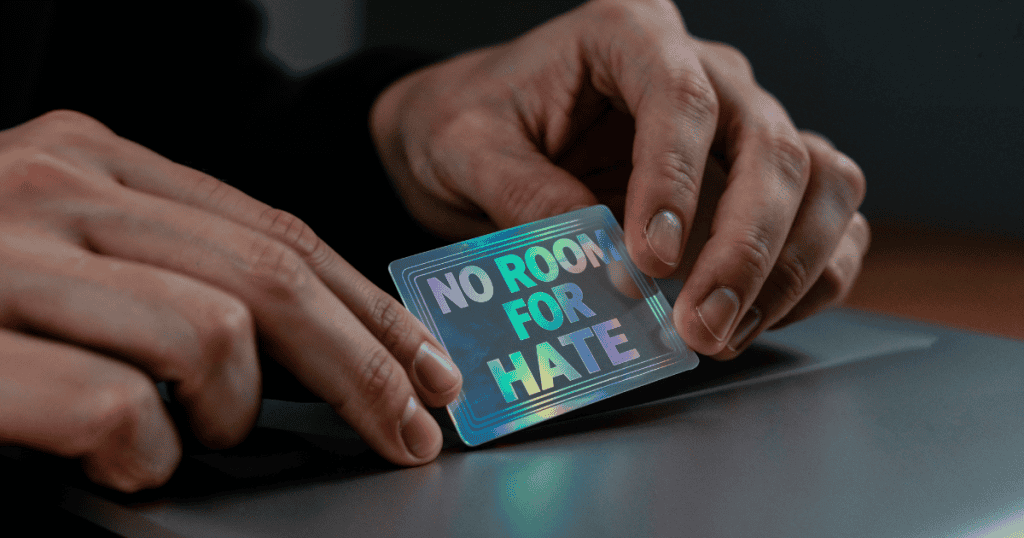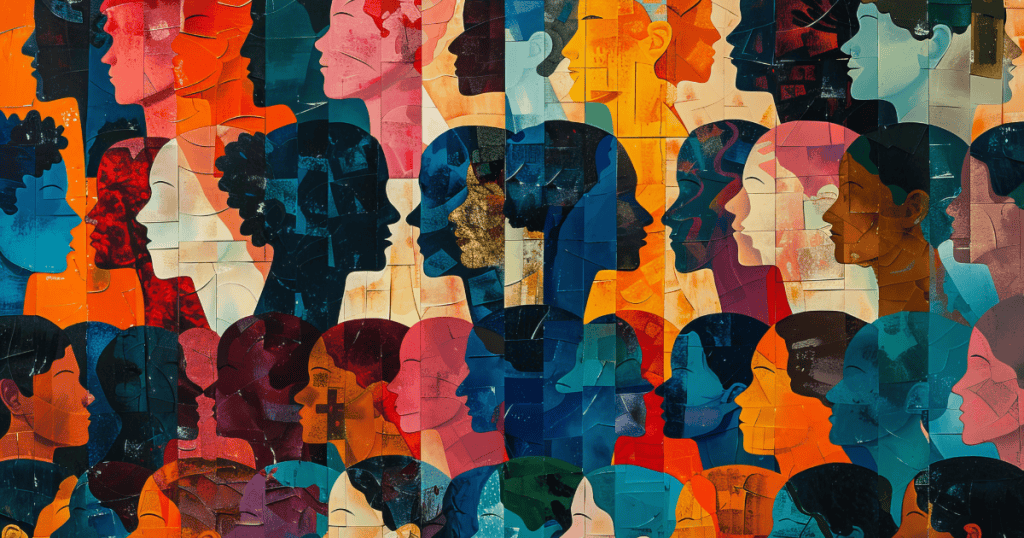If I had stayed silent, my toxic family would’ve called me loyal. I left, so they called me cruel.
The first time I broke the unspoken rules of my family, I thought the ground would swallow me whole.
I had done the unthinkable. I told the truth.
Not just to myself, but loudly and publicly.
And not in whispers over coffee with a trusted cousin, but in a way that made it impossible to sweep under the rug.
The reaction was instant. People didn’t ask if I was okay. They asked why I would say such a thing.
My pain wasn’t the problem. My voice was. This is how society works when it comes to toxic families.
Silence is rewarded. Truth is punished. Loyalty is measured by your ability to endure abuse quietly.
If you stay, you’re seen as “dutiful.” If you leave, you’re labeled “heartless.”
The rules are written to protect the abusers, not the survivors.
But the thing is, the day you walk away is the day you stop participating in your own erasure.
This breaks down exactly how society keeps us trapped in shame, and why stepping away is going to make you powerful.
Table of Contents
The Pressure to Stay Silent

In toxic families, silence isn’t just encouraged. It’s enforced.
I still remember when I sat in the kitchen with my controlling mother after a heated family argument.
I tried to explain how my narcissistic younger brother had been treating me unfairly.
She leaned in, lowered her voice, and said, “Don’t bring this up again. You’ll just make it worse.”
It’s not just my story. Many other survivors I’ve spoken to say they were told to “keep the peace.”
But peace for whom? Not for me or other survivors out there.
Silence is disguised as maturity. You’re told it’s “rising above.”
But in reality, it’s a way of keeping the family’s image polished while your self-worth erodes.
Silence isn’t a bridge to healing, but a wall that keeps the cycle going.
Guilt as a Control Tactic

The first time I said no to a family obligation, my stomach churned for days.
I had been invited, more like summoned, to a gathering where I knew the atmosphere would be hostile.
When I declined, my toxic sister told me, “You think you’re better than us now?”
This is the trap. If you show up, you feel small and unsafe.
If you don’t show up, you’re made to feel guilty.
Guilt is one of the most effective tools in a toxic family’s arsenal because it works on your deepest wiring.
We are taught from childhood that “family first” is sacred.
To go against that feels like betraying your very identity.
This is how guilt is weaponized:
- Rewriting the story: Your boundary becomes a “personal attack.”
- Emotional theatrics: Tears, long sighs, and passive-aggressive comments.
- Public shaming: Bringing up your absence in front of others.
Psychologists note that guilt can be a powerful means of social control.
This is especially true in cultures where family honor is paramount.
Research from the American Psychological Association explains how guilt often operates not as a moral compass, but as a manipulation lever.
Guilt doesn’t prove you’ve done something wrong. It just proves someone doesn’t like losing control over you.
Romanticizing Suffering in The Name of Family

In my narcissistic family, I’ve seen people treat their own exhaustion as a badge of honor.
My grandmother would work herself sick to cover everyone’s needs, then resentfully point out her sacrifices.
It was a subtle but constant message that love equals suffering.
Society reinforces this. We are told “good mothers give everything” and “good daughters never complain.”
Movies, traditions, and even religious teachings sometimes glorify the idea that pain in the service of family is noble.
But here’s the hard truth:
- Real love doesn’t demand you burn yourself out to prove it.
- Real love doesn’t hold your sacrifices over your head.
- Real love doesn’t make you smaller so others can feel bigger.
When suffering is romanticized, abuse becomes normalized. And when abuse is normalized, speaking up becomes unthinkable.
When I told an older relative I was tired of constant criticism and emotional belittling, they waved it off.
They said, “All that matters is you had a roof over your head, at least they didn’t hit you.”
That’s the problem. If there are no bruises, people act like there’s no wound.
They confuse the absence of physical harm with the absence of harm altogether.
But research on emotional abuse shows its effects can be as damaging, and sometimes even more insidious, than physical violence.
Chronic belittling, gaslighting, and emotional neglect can rewire your brain’s stress responses.
It triggers long-term anxiety or depression and leaves scars on your sense of self that no one else can see.
Here are signs that emotional abuse is being minimized:
- Your pain is compared to someone “who has it worse.”
- You’re told to be “grateful” instead of validated.
- The abuser’s intentions are used to erase their impact.
This dismissal keeps the cycle alive. When harm is downplayed, accountability disappears, and so does the chance for change.
Just because your wounds are invisible doesn’t mean they’re imaginary. Pain doesn’t have to be visible to be real.
You don’t have to wait for it to “look serious” before you decide it matters.
Your healing is justified. Your story counts.
And the fact that it happened behind closed doors doesn’t make it any less true.
The Stigma Around Estrangement

If you cut ties with a toxic partner, most people understand.
But try cutting ties with a toxic parent, and suddenly the moral compass spins out of control.
When I decided to go no contact with a narcissistic family member, people didn’t ask why.
They asked how I could. Some implied I’d regret it when “it was too late.”
The stigma works like this:
- Parents are seen as inherently deserving of loyalty.
- Estrangement is viewed as rebellion rather than protection.
- Survivors are framed as cold or ungrateful, not self-preserving.
Sometimes, estrangement isn’t the failure of a relationship.
It’s the proof that you finally value yourself enough to stop accepting harm.
The Burden on the ‘Cycle Breakers’

If you are the one in your family who refuses to “just let things go,” you know this burden well.
You get called the troublemaker, the overreactor, the ungrateful child.
You become the person who “makes things awkward” simply because you’re no longer willing to pretend that hurtful patterns are normal.
In my case, even my dad, my biggest supporter, would sometimes suggest I “keep the peace” for the sake of family gatherings.
It wasn’t because he didn’t believe me.
It was because he didn’t want to watch the fallout, the icy silences, the whispered conversations after I left the room.
Being a cycle breaker means you carry two loads.
The unhealed trauma of generations before you and the responsibility to make sure it ends with you.
It’s heavy work. It’s lonely work.
Sometimes it feels like you’re holding a mirror up to people who would rather smash it than see their reflection.
You’re forced to be the historian of pain and the architect of change all at once.
But you’re not tearing the family apart. You’re refusing to keep it together at the expense of truth.
And while they may not thank you now, the generations that come after you will inherit something far more valuable than silence.
They’ll inherit freedom.
The Hard Truth: Love Without Respect Isn’t Love

Growing up, I believed love was about staying no matter what.
That if I left or set a boundary, it meant I didn’t care enough.
I thought loyalty meant swallowing my feelings, minimizing my needs, and accepting whatever treatment I was given because “that’s what family does.”
Over time, I learned the difference between love and control:
- Love allows space for individuality. Control demands conformity.
- Love celebrates your voice. Control punishes you for using it.
- Love feels safe. Control feels like walking on eggshells.
Real love doesn’t keep score, manipulate your fears, or guilt you into submission.
It doesn’t require you to shrink yourself just to fit someone else’s comfort.
Respect is the foundation of love. Without it, what you have isn’t connection but captivity.
Sometimes, the bravest thing you can do is unclasp it, step away, and remember that love without freedom isn’t love at all.
It’s control dressed up as care.
You Are Allowed to Choose Peace Over Obligation

You’re allowed to step away without explaining yourself to everyone.
You’re allowed to choose your mental health over family tradition.
You’re allowed to rewrite what “family” means to you.
Boundaries aren’t about betrayal.
They’re about the repair of yourself, your future relationships, and your sense of safety.
You are not here to endlessly absorb hurt just because you share DNA.
Family is defined by trust, respect, and safety rather than by blood alone.
You didn’t walk away because you didn’t care.
You walked away because you finally did care.
About yourself, your healing, and the life you deserve to live without chains disguised as love.
Related posts:
- How I Reparented Myself After Leaving My Narcissistic Family (And Finally Felt Safe in My Own Skin)
- 7 Narcissistic Behaviors I Refuse to Tolerate (Even If It’s My Family or Partner)
- 3 Rules That Ended My Role as Family Therapist to My Narcissistic Family
- Why Cutting Off My Narcissistic Family Was Better Than Any Therapy?
- What I Say When People Ask About My “Estranged Narcissistic” Family


